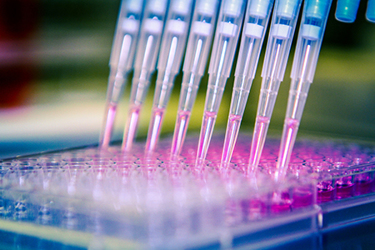Bacto CD Supreme FPM Consistently Supports Higher Growth And Plasmid Production In E. coli

Microbial cultures used in cloning, plasmid DNA preparation, and protein expression applications require specific and essential growth components. Microbial media have been available for many years, with the first Luria-Bertani (LB) broth formulation developed in the early 1950s [1]. With the development of new treatment modalities, such as conjugated monoclonal antibodies (mAbs) or mRNA and DNA vaccines, there is renewed interest in bioproduction platforms using Escherichia coli (E. coli), an established model for microbial recombinant bioproduction technology.
Traditional microbial media for E. coli often contain animal-origin components and are complex, consisting of yeast extracts and peptones to provide nutrients for growth and production. Overall, the biopharmaceutical industry has been driving toward achieving and supporting greater consistency in plasmid production for scale-up by developing animal origin–free (AOF) and chemically defined (CD) media. Additionally, it is desirable for manufacturers to have the flexibility to use autoclaving, steam-in-place (SIP), or membrane filtration procedures during media preparation.
The development of Gibco™ Bacto™ CD Supreme Fermentation Production Medium (FPM) supports process flexibility and consistency in production. Bacto CD Supreme FPM was evaluated for plasmid production with Thermo Scientific™ DH5α™ E. coli, and compared to Terrific Broth (TB), a traditional microbial medium. Additionally, consistency in growth and production was evaluated for scale-up from a shake flask to a benchtop stirred-tank bioreactor applying a batch or fed-batch process.
Get unlimited access to:
Enter your credentials below to log in. Not yet a member of Cell & Gene? Subscribe today.
